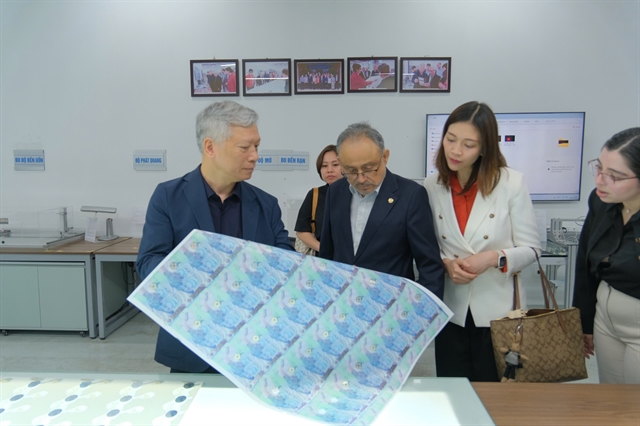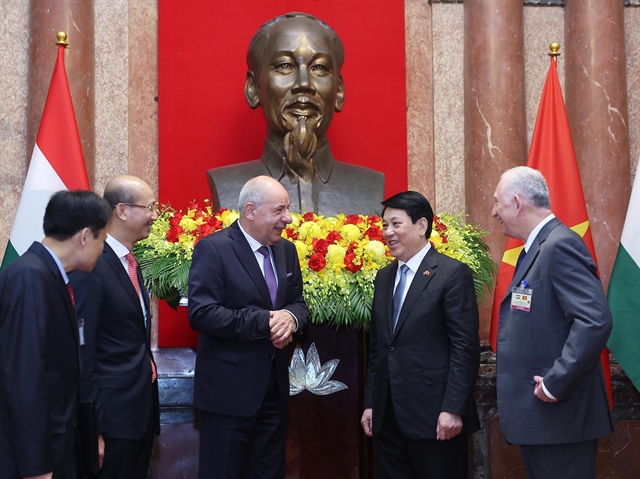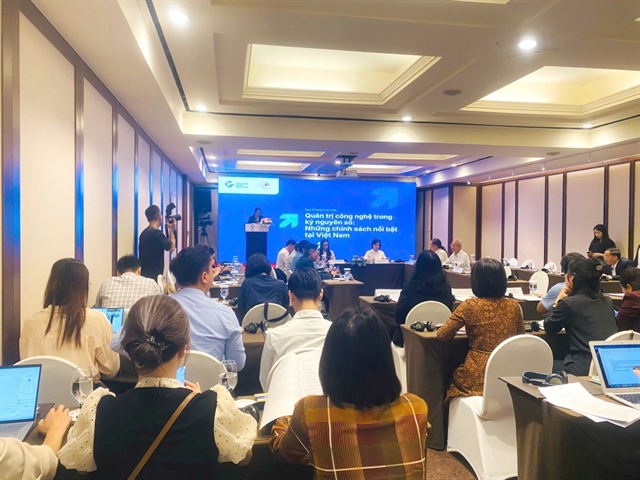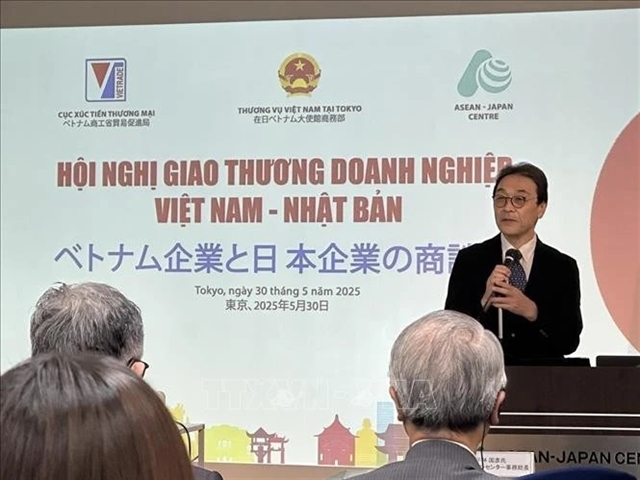 Economy
Economy

Việt Nam’s telecom infrastructure gives it a good foundation for developing business models based on digital connections, vital for success in the fourth industrial revolution, Deputy Prime Minister Vương Đình Huệ said yesterday.
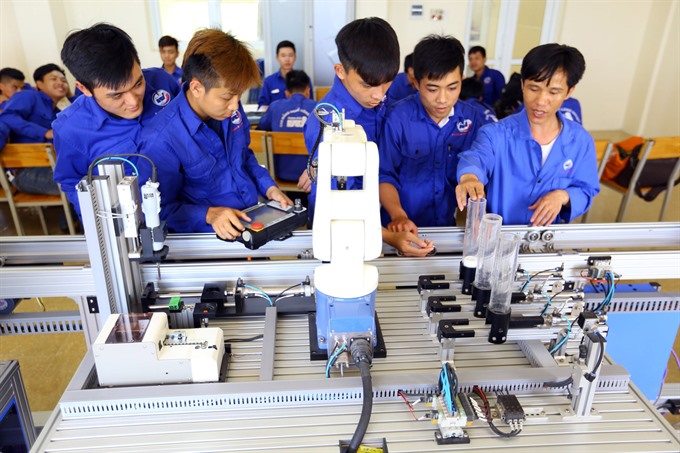 |
| Students undergoing an industrial training class at the Thanh Hóa Vocational College of Industry. The impact of the Fourth Revolution will lead to a shift in focus from cheap labour to labour quality. — VNA/VNS Photo Anh Tuấn |
HÀ NỘI — Việt Nam’s telecom infrastructure gives it a good foundation for developing business models based on digital connections, vital for success in the fourth industrial revolution, Deputy Prime Minister Vương Đình Huệ said yesterday.
As such, the nation will focus on building a world of super-connectivity needed to tackle challenges posed by Industry 4.0, he told a forum held in Hà Nội.
In line with its aim of being a constructive Government, his administration will work closely with the business community as well as local and foreign experts to overcome problems that arise, the Deputy PM added.
He also said that the Government would promote corporate social responsibility on the basis of harmonious interests between the State, the people and businesses.
Efforts will continue to remove administrative barriers and develop favourable policies and mechanisms to boost national competitiveness, he said.
The Deputy PM noted that Việt Nam has achieved remarkable success in developing its telecommunications industry, with over 130 million mobile phone subscribers and more than 55 per cent of the population regularly connecting to the Internet.
This has laid a good foundation for new business models based on digital connections, including sci-tech startups, he said.
With the right approach, low-income groups can also participate in and benefit from the fourth industrial revolution, he added.
“To be successful, every country and every business needs to come up with a unique solution and approach. Knowing the problem and having a different vision is very important in today’s context,” Huệ said.
The forum featured in-depth discussions among the prospects of a competitive and inclusive Việt Nam, measuring social impacts of businesses, the WEF’s new approach to assessing national competitiveness and technological change, bottlenecks to improving national competitiveness and other solutions for improvement.
Justin Wood, Asia Pacific head of the World Economic Forum (WEF), said that the impact of the Fourth Revolution will lead to a shift in focus from cheap labour to labour quality.
In response, the WEF has been working on a project with the Ministry of Labour, Invalids and Social Affairs (MoLISA) to develop a human resources training system using the former’s experience and expertise in business competitiveness and economic development, Wood said.
The WEF sees that Việt Nam’s connectivity index will improved in the coming years, said Thierry Geiger, WEF’s Head of Analytics and Quantitative Research on Global Competitiveness and Risks.
He noted that Việt Nam has evolved from a low-income to a middle-income country, and is looking to further develop into a high income one in order to avoid the middle-income trap.
A super-connected world will provide opportunities for all individuals, businesses and organisations in all regions regardless of borders, creating the ultimate opportunity for development, which is true for Việt Nam and all other economies, said Gemma Corrigan, WEF’s expert on Economic Growth and Social Inclusion Initiative.
However, the Deputy PM noted that some recent changes in business models have caused social disturbances through large-scale displacement of workers, as has happened with taxi firms and some manufacturing industries.
The new transnational digital platform business model has to address the issue of fair financial obligations and fair competition, and the role of the State in managing this development process, Huệ said.
Deputy Foreign Minister Bùi Thanh Sơn noted that the Vietnamese Government and WEF had early this year signed a co-operation agreement on future economic development.
At the moment, the WEF is in the process of preparing a report on Việt Nam during the Fourth Industrial Revolution that is expected to provide practical recommendations.
Jointly held by the Ministry of Foreign Affairs (MoFA) and the WEF, the theme of yesterday event was Competitiveness and Development in the context of the Fourth Industrial Revolution. — VNS





